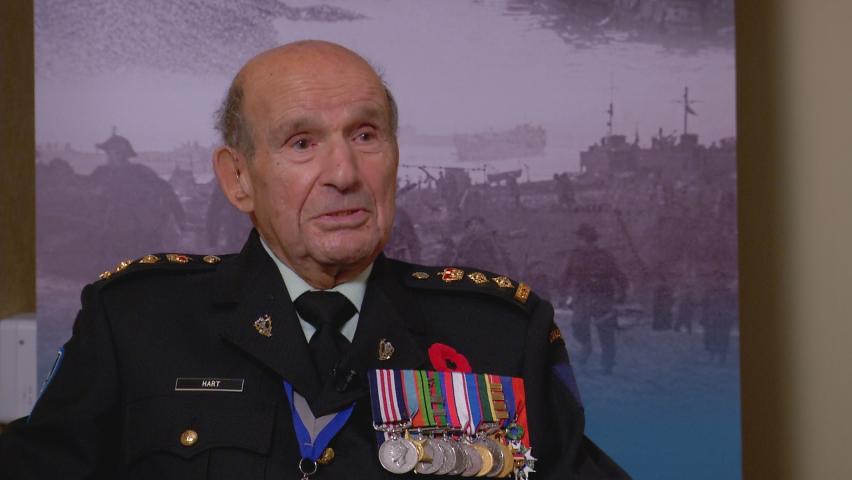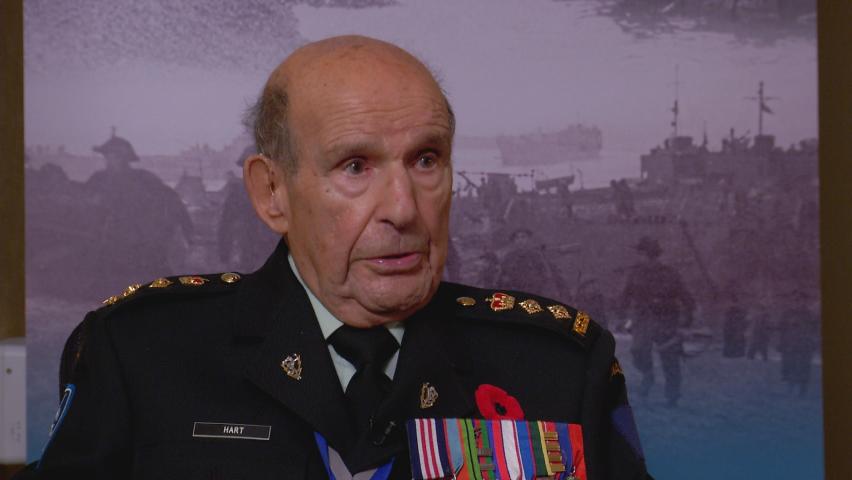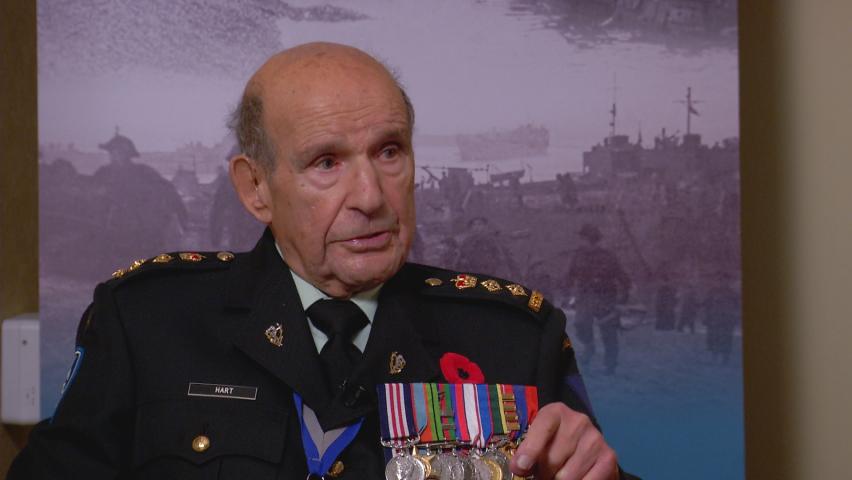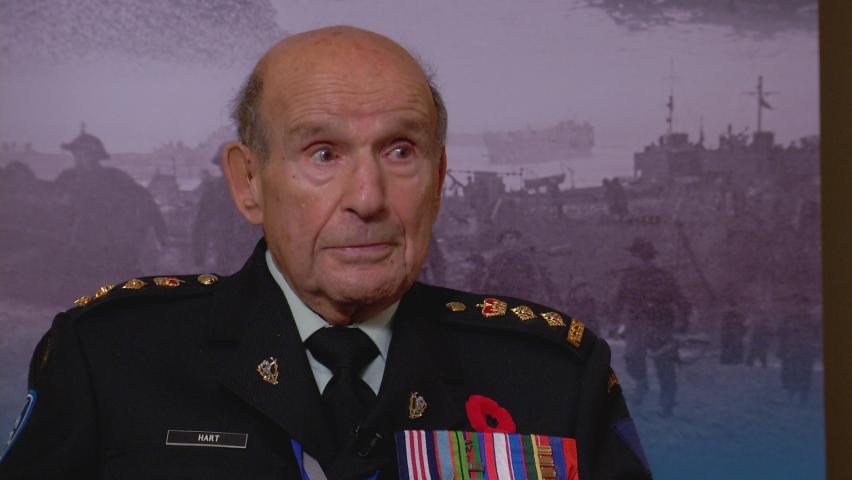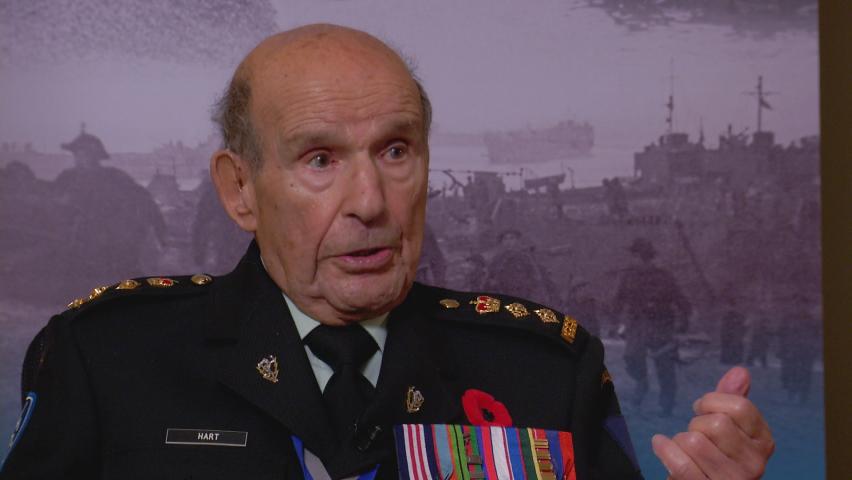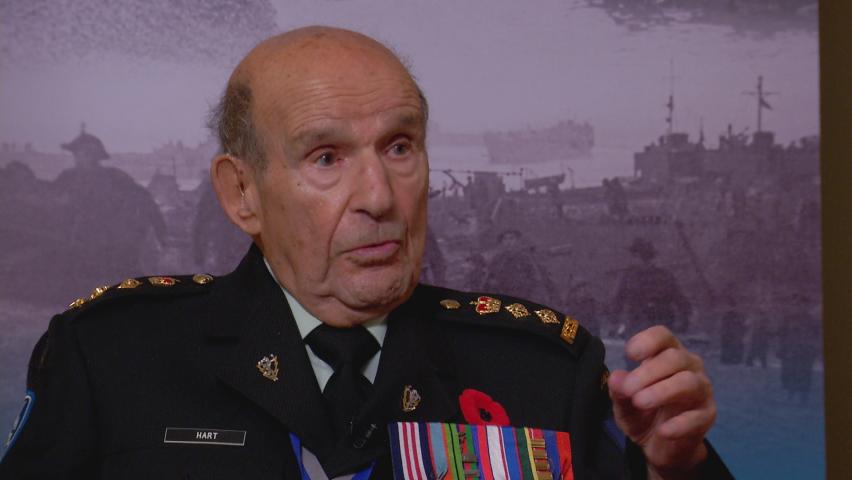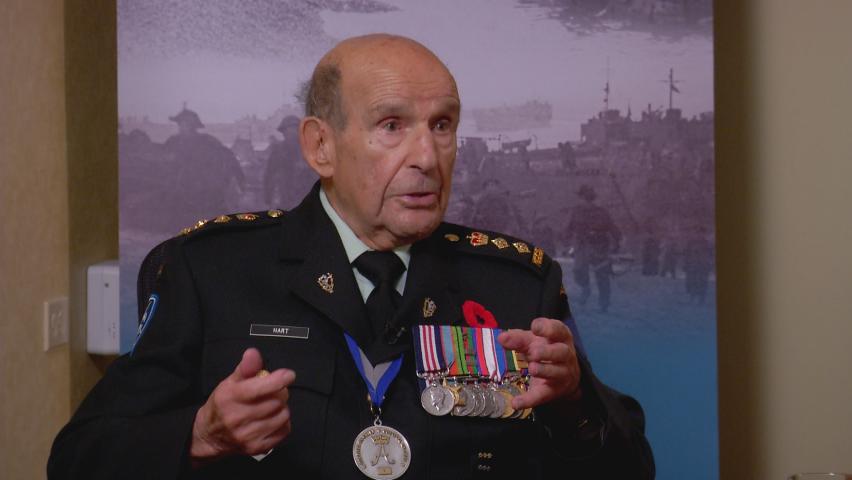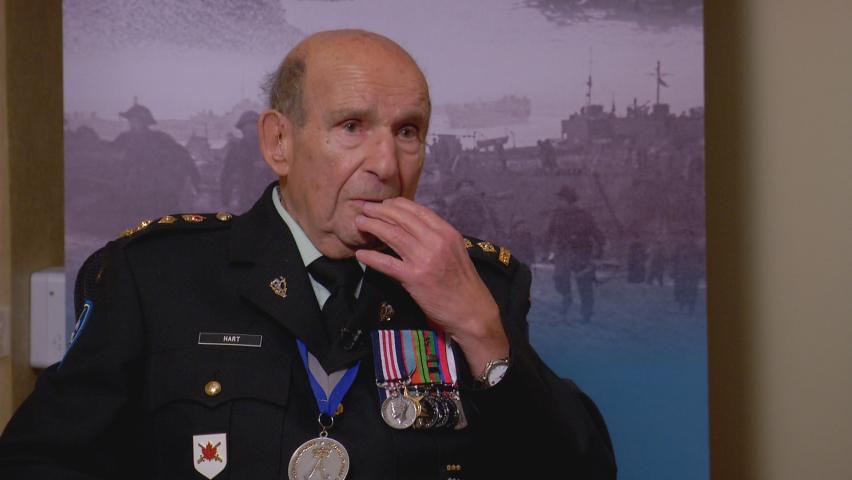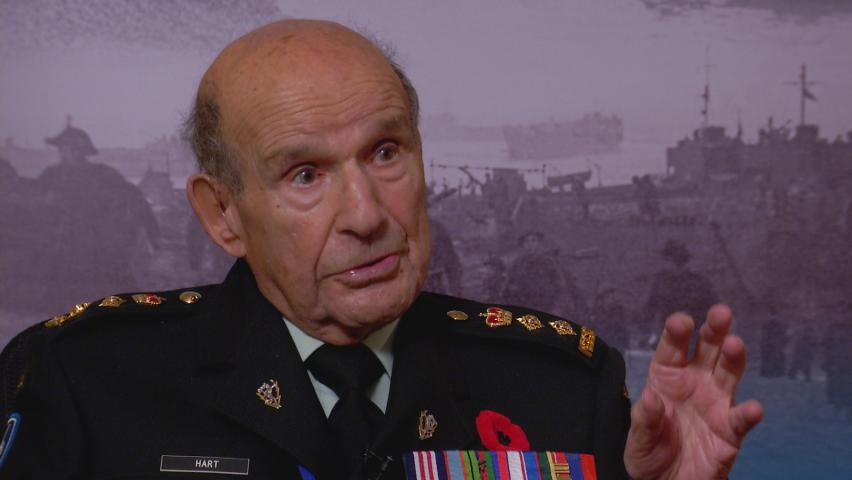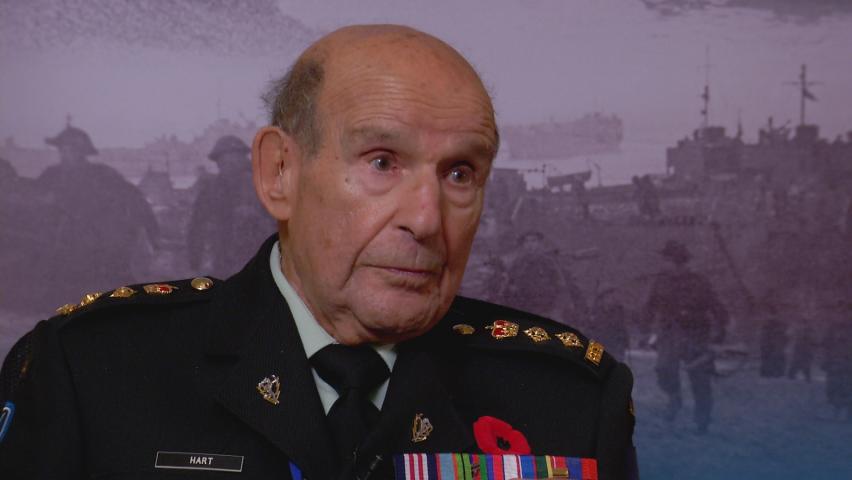Training at Isle of Wight
Heroes Remember
Training at Isle of Wight
Transcript
Description
Mr. Hart talks about the type of equipment and tactics used in signals communication.
David Hart
Mr. Hart was born in Montreal, Quebec on July 8, 1917. One of seven boys, Mr. Hart joined the army reserves and high school cadets later graduating from college as an accountant. Joining with the Fourth Divisional Signals in 1937, he then joined active service August 1939. Mr. Hart continued on with his service as a signalman with the Royal Canadian Corps Second Divisional Signals taking part in The Dieppe Raid as a sergeant. For his part in this historical event, Mr. Hart received the Military Medal for bravery, awarded to him by His Majesty King George VI at Buckingham Palace. Upon returning to Canada, Mr. Hart continued on with his accounting career. Having great pride for his service, Mr. Hart has returned to Dieppe six times and with this being the 75th Anniversary of the Dieppe Raid, along with his wife and son, he will be joining the Canadian delegation in recognition of this commemorative event. At 100 years of age, Mr. Hart continues to enjoy life with his wife of 99 years of age, still residing in their own home. Mr. Hart continues to promote the importance of the Dieppe Raid so that Canadians will truly understand the sacrifice that was given during this battle. He and his wife now reside in Montreal, Quebec.
Meta Data
- Medium:
- Video
- Owner:
- Veterans Affairs Canada
- Recorded:
- August 15, 2017
- Duration:
- 3:14
- Person Interviewed:
- David Hart
- War, Conflict or Mission:
- Second World War
- Location/Theatre:
- Dieppe
- Battle/Campaign:
- Dieppe
- Units/Ship:
- Royal Canadian Corps Second Divisional Signals
- Rank:
- Lance-Corporal
- Occupation:
- Signaller
Related Videos
- Date modified:



